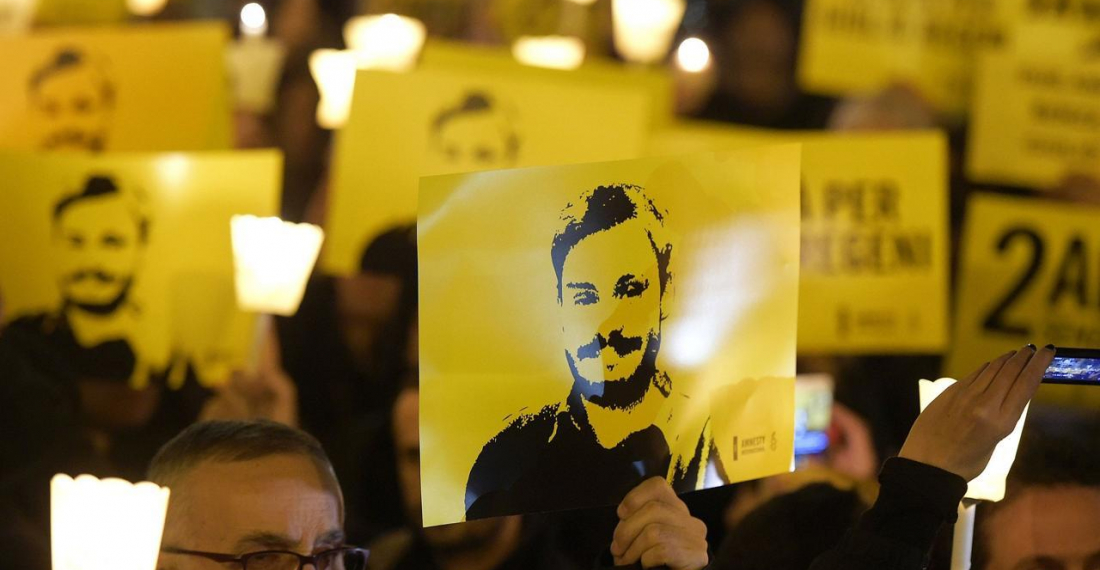Egyptian prosecutors have reacted angrily to the announcement that Italian prosecutors intend to prosecute five Egyptian police and intelligence officers over the death of an Italian researcher in Cairo in 2016. The BBC reports that Italian investigators intend to close their investigation into the killing later this week and are then expected to press ahead with a trial in absentia.
Giulio Regeni, a 28-year-old postgraduate researcher of Cambridge University, had been researching trade unions in the Egyptian capital when he disappeared on 25 January 2016. A number of witnesses have reported his abduction by agents of the Egyptian National Security Agency on the same day. He was found murdered and mutilated nine days later by a highway on the outskirts of the city. Due to Regini’s research and political views, the Egyptian security forces have long been suspected of involvement in the killing.
Since 2018, the Italian prosecutors have asked Egypt to hand over the five suspects or at least help to prosecute them in absentia. Egyptian officials have always denied any involvement, providing various other explanations for Regini’s death. They once suggested that he was the victim of a five-strong criminal gang, all of whom had been killed in a shootout – an assertion that Italian officials labelled ‘implausible’. The first Egyptian post-mortem of Regini’s death found that the student had been killed in a car accident. However, this finding was contradicted by an Italian post-mortem, which found that he had been tortured in stages between 25 January 2016 and his death.
Reacting to the announcement that Italian prosecutors intend to try Egyptian officials, Egyptian prosecutors asserted ‘that the perpetrator of the murder of the Italian student is still unknown’ and announced that they would temporarily suspend their investigation into Regini’s death.
Regini’s parents called the Egyptian statement, “the ultimate lack of respect toward our magistrature and our collective intelligence”. They continued:
“We must reclaim our dignity so that no country can vilify another’s citizen while remaining not only ‘friendly’, but also unpunished. We owe this to Giulio and to all other men and women like him, as we continue to fight for truth and justice.”







